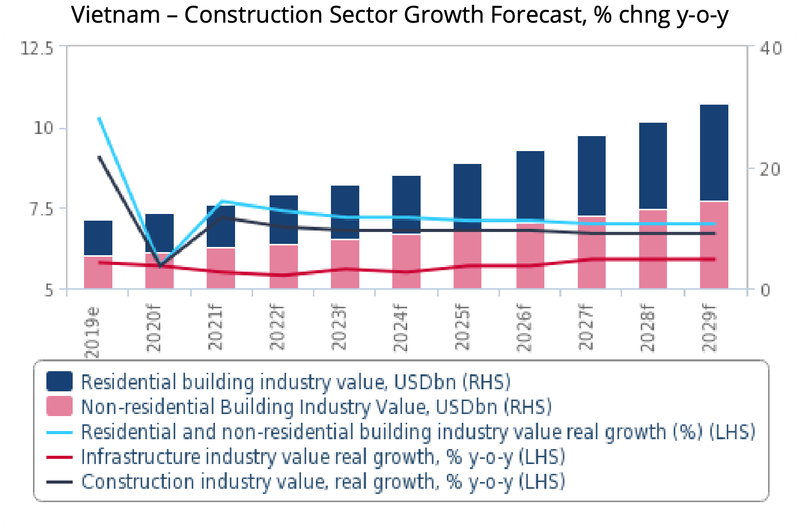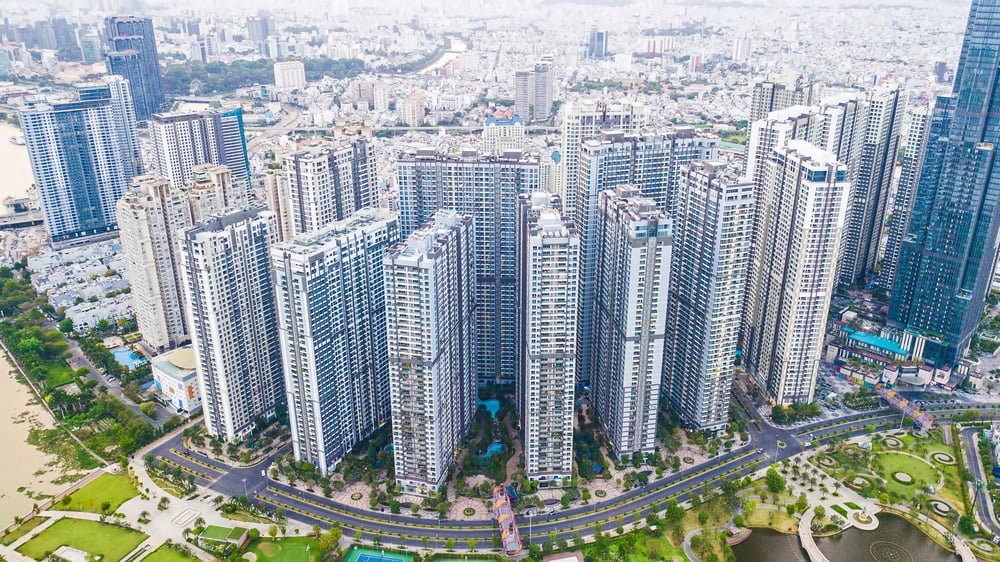Vietnam is undergoing a construction boom, and real estate development is playing a major role in this transformation. From residential projects to social housing, the market of Real Estate Development Vietnam is expanding to meet the needs of a growing population and a rising economy.
Ready to find out more about the key trends, statistics, and government initiatives that are shaping the future of real estate development in Vietnam? Keep reading!
Construction Sector Growth in Vietnam

The Real Estate Development Vietnam grew by an impressive 8.5% in 2022. Large investments in infrastructure and housing projects have driven this growth. Experts predict the sector will continue to grow at an average annual rate of 8% from 2023 to 2026. By 2026, the market could be worth USD 100 billion. This is largely due to the government’s focus on urbanization, infrastructure, and housing development.
Urbanization and Its Impact on Real Estate Development Vietnam
Vietnam’s rapid urbanization is a key driver of real estate development. The urbanization rate is expected to reach 45% by 2030 and 50% by 2050. This increase is largely due to people moving to cities for better job opportunities and a higher quality of life. To meet this demand, Vietnam will need to build 70 million square meters of new housing annually.
While Vietnam’s overall urbanization rate is rising, the distribution is uneven across different regions. The Northern urban pole centered around Hanoi and the Southern urban pole anchored by Ho Chi Minh City. These places are experiencing the most intense urbanization, with immigration rates significantly higher than the national average. The uneven distribution ends up putting pressure on infrastructure and housing in these major cities.
Social Housing Initiatives in Vietnam
To address housing shortages, the Vietnamese government has launched a social housing initiative. The plan is to build 1 million social housing units by 2030. These homes are aimed at low-income families and workers in industrial zones. In 2024, the government plans to complete 130,000 social houses. This shows a strong commitment to ensuring affordable housing for the population, which is critical as the country continues to urbanize.
Developers are also focusing on building more high-rise condominiums and apartments. In Hanoi alone, there were over 1,800 high-rise buildings (over ten stories) under construction or planned as of 2021. This shift towards vertical development is a response to land scarcity and increasing urban density in Vietnam’s major cities.
Foreign Investment in Vietnam’s Real Estate Sector
Foreign Direct Investment (FDI) is another important factor in the growth of Real Estate Development Vietnam. In 2021, FDI made up about 15% of total investments in the real estate sector. Foreign investors are attracted by Vietnam’s favorable policies, stable economy, and growing middle class. In the first half of 2023, Vietnam received USD 15.4 billion in FDI, with a significant portion directed towards real estate. This influx of capital is helping to drive development, particularly in commercial and residential projects.
Residential Market Trends
Vietnam’s residential construction sector is one of the largest in the country’s construction industry. In 2023, this sector is projected to be worth approximately USD 93 billion. The growth in residential Real Estate Development Vietnam is driven by increasing disposable incomes and a rising middle class eager to invest in homeownership. With more people moving to cities and looking for better living conditions, the demand for high-quality housing is expected to remain strong.
Real estate development is a key driver of Vietnam’s economic growth, with significant contributions from both domestic and foreign investments. The combination of rapid urbanization, government-led social housing projects, and foreign investment is transforming the Real Estate Development Vietnam. As the country continues to urbanize and the economy grows, the demand for housing and infrastructure will remain strong, offering many opportunities for real estate developers. Poised for steady growth in the coming years, the country is an attractive destination for both local and international investors.

